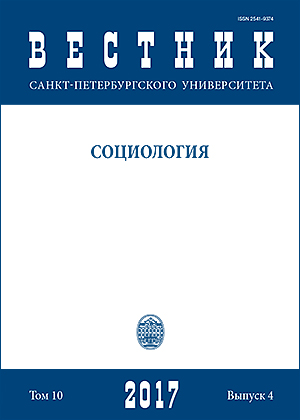Communicative capital: Conceptualization of the concept
DOI:
https://doi.org/10.21638/11701/spbu12.2017.402Abstract
In the article, the author makes an attempt at a theoretical and methodological conceptualization of “communicative capital”. On the one hand, he analyzes the experience of applying this concept to domestic and foreign studies in the field of economics and sociology. On the other hand, he considers “communicative capital” from a critical media theory point of view, in particular, J. Dean’s motion of “communicative capitalism”. The author develops “communicative capitalism” and exposes it to the study of the formation of labor and capital relations in the context of mediated and commodified networked communication, i.e. an ‘attention market’: Internet users, network brands, and social platforms function on a pole where, in addition to the traditional forms of capital (economic, social and cultural), communicative capital is actualized. Offering an interpretation of the new processes of communicative capital concentration and conversion, he is also focusing on the process of monetization of communicative capital. At the end of the article, models of monetization of communicative capital on macro and micro levels are presented, as well as practices for attracting and enclosing audience attention, and stimulating it not only for communication activity but also for purchases within the network section. Thus, we understand the use by network brands holders, as communicative capitalists, of multi exploitation practices (when the audience becomes an internal mini-market on the network section, and at the same time - the object of sale for the advertiser). The same practices are used by social platforms at the macro level (the product created by an audience attracts new participants, and all of them are also of interest to the political and business groups as buyers of goods or meanings and preferences carriers). Refs 37. Figs 3.
Keywords:
social media theory, critical theory of society, communicative capitalism, communicative capital, attention economy
Downloads
References
References
Downloads
Published
How to Cite
Issue
Section
License
Articles of "Vestnik of Saint Petersburg University. Sociology" are open access distributed under the terms of the License Agreement with Saint Petersburg State University, which permits to the authors unrestricted distribution and self-archiving free of charge.




